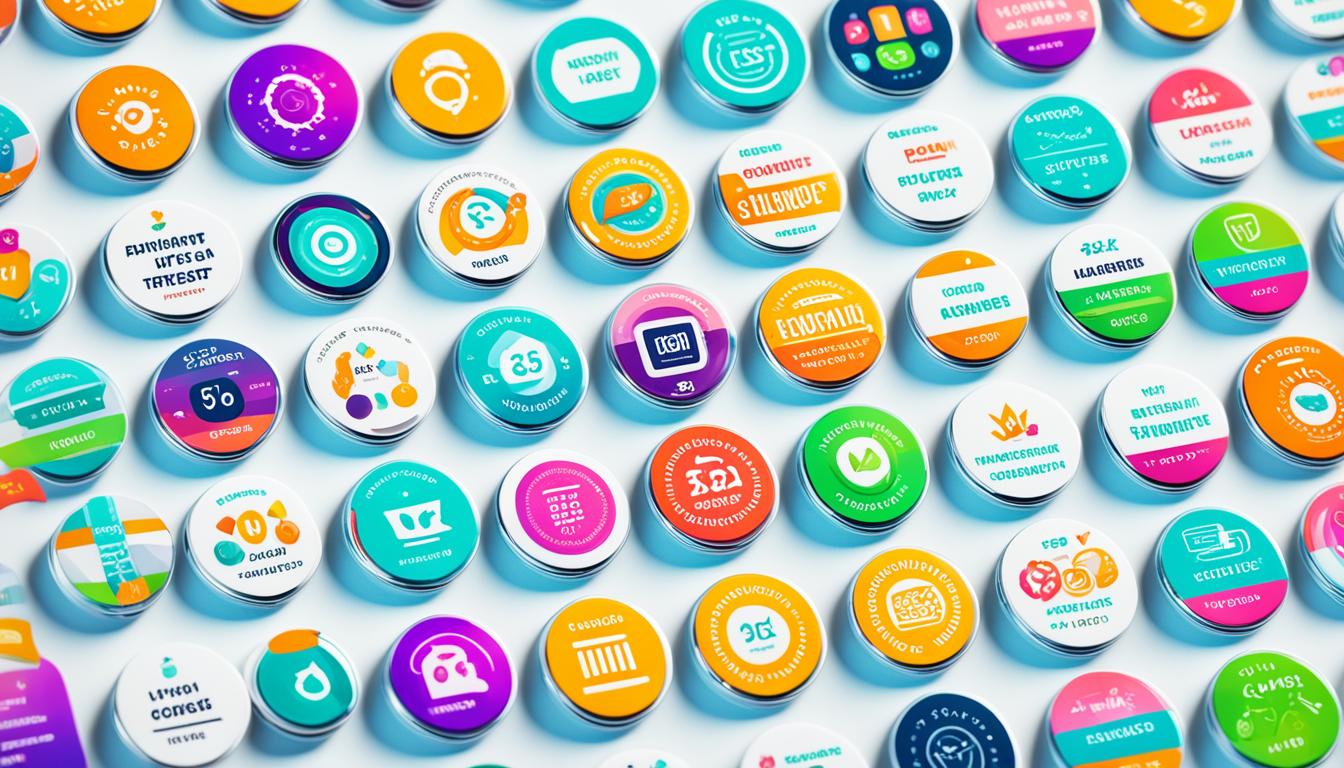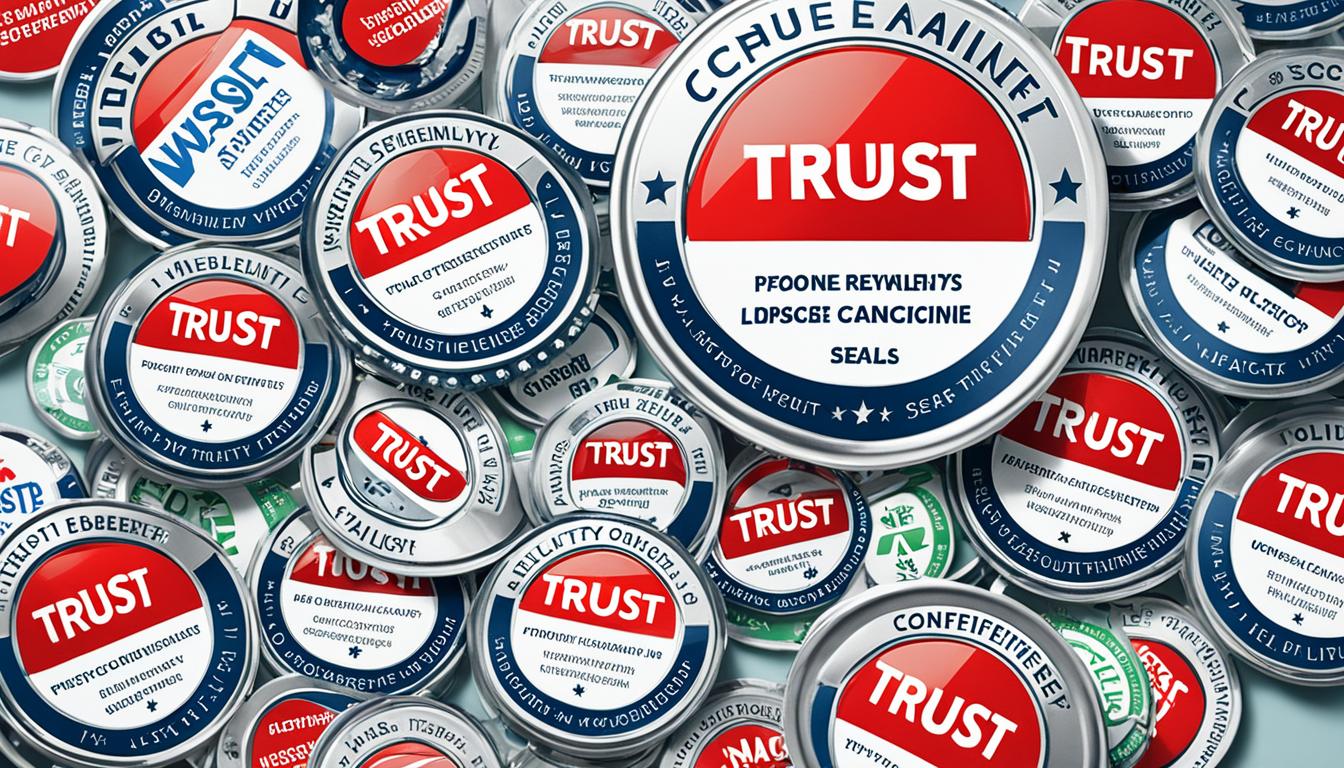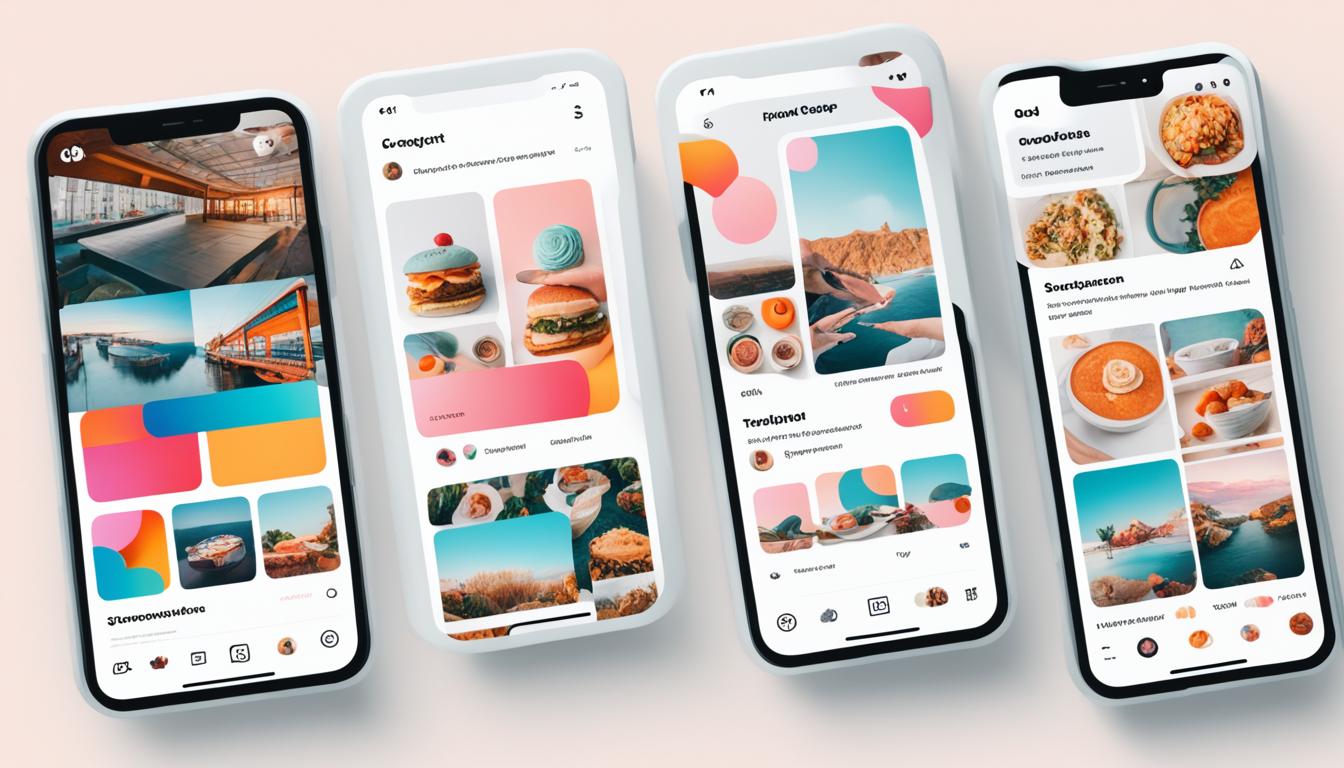Social Proof: 20 Examples and Creating a Website Widget
Leverage Social Proof: 20 Examples and a Website Widget Guide
Did you know that using social proof in marketing can double your sales¹? This fact shows how powerful social proof is today. We all look for proof that we're making the right choices. Businesses that use this can greatly increase their trust and credibility online.
Social proof is like a guide in a sea of information. A huge 91% of young people trust online reviews as much as advice from friends¹. This trust is not just for the young, as 79% of all people use online reviews to help them decide what to buy¹.
Social proof really helps with sales. Products with good reviews can see sales go up by as much as 270%¹. This means more people trust your brand, which is great for your business. So, social proof is key for any good digital marketing plan.
We're going to look at 20 great examples of social proof and how to make a website widget. You'll see how to use different types of social proof, like customer reviews and expert advice. This will help you build trust with your audience.
Key Takeaways
Social proof can double conversion rates in marketing
91% of young consumers trust online reviews as much as personal recommendations
Positive reviews can increase sales conversion rates by up to 270%
Social proof comes in various forms, including user-generated content and expert opinions
Implementing a social proof website widget can significantly boost online credibility
Understanding different types of social proof helps in creating an effective marketing strategy
Understanding Social Proof in the Digital Age
In today's fast-paced digital marketing world, social proof is key. It shapes how people decide and builds trust for businesses.
Defining social proof
Social proof is when we look at others to help us make choices. Online, it shows up in reviews, testimonials, and what others post. A huge 89 percent of shoppers say it affects their buying choices².
The psychology behind social influence
Our brains like shortcuts when deciding. Social proof is like a trust sign, helping us pick from many options. It's like getting advice from a friend, but for everyone. This leads to following the crowd, where we act like others in groups³.
Why social proof matters for businesses
Social proof changes the game for businesses. It can greatly increase sales and conversions. For instance, Leggari saw sales double and average order value jump by 87 percent after showing recent buys and customer feedback⁴. It also lowers the risk, making customers feel sure about their choices.
Video testimonials work really well. With 64 percent of viewers more likely to buy after watching a video, it's clear why 73 percent of B2B companies using video marketing see a positive return². By using these trust signs, businesses can really shape how customers decide and grow online.
Types of Social Proof for Websites

Social proof is a key way to build trust and influence decisions on your website. Let's look at the different types of social proof you can use. These can help boost your online presence and credibility.
Customer testimonials are a big part of social proof. They share real insights from users, with 93% of shoppers saying online reviews help them decide what to buy⁵. These testimonials can also increase conversion rates by 34%, making them a great asset for your site⁵.
Expert endorsements add authority to your brand. When industry leaders recommend your product or service, it changes how people see your brand⁶. This type of social proof uses the idea that people follow others they respect⁷.
User-generated content is also a strong form of social proof. It includes customer reviews, ratings, and social media mentions. For example, Airbnb uses customer stories and reviews to build trust and authenticity⁷.
Social media proof is key in today's digital world. Showing your follower count or adding social media feeds to your site can show how popular you are. For instance, using tweets as short testimonials works well with today's short attention spans, which are just 8 seconds⁵.
Type of Social Proof - Example
Customer Testimonials: Video testimonials
Expert Endorsements: Industry authority recommendations
User-Generated Content: App store reviews
Social Media Proof: Follower count display
Impact
Customer Testimonials: 42% of people find them compelling⁵
Expert Endorsements: Significantly impacts brand perception⁶
User-Generated Content: Showcases service value⁶
Social Media Proof: Demonstrates popularity
Other good types of social proof include trust badges, client logos, and real-time user activity notifications. By using these, you can build a strong trust strategy. This strategy will connect with your audience and help increase conversions.
User-Generated Content as Social Proof
User-generated content (UGC) is a key tool for brands to show real feedback and customer stories. This kind of content can greatly affect buying decisions and how people see a brand.
Customer Reviews and Ratings
Reviews are very important when people are deciding to buy something. On average, shoppers look at ten reviews before they make a purchase⁸. Good reviews can help sales, but bad ones can stop people from buying. Just one negative review can make some people not want to buy a product⁸.
Photo and Video Testimonials
Visual UGC can really help build trust in a brand. GoPro's top three user-made videos have gotten over 400 million views, showing how powerful customer content can be⁹. Brands like Lululemon get more people to share photos with special hashtags, building a community around their products⁹.
Social Media Mentions and Shares
Social media engagement is a big deal for showing trust in a brand. LaCroix uses the hashtag #LiveLaCroix to get UGC for their social channels, trying to make things more relatable⁹. This works because 60% of people say what their friends or family share influences their buying choices¹⁰.
UGC Type - Impact on Trust - Consumer Influence
Brand-shared UGC: 86% more likely to trust - High
Influencer content: 12% likely to purchase - Moderate
Friend/Family content: 60% influence on decisions - Very High
By using UGC, brands can build trust, get more people involved, and boost sales. It's a strong way to show social proof that connects with consumers and builds a community around products and services.
Expert Endorsements and Industry Recognition

Expert endorsements and industry recognition are key to making your brand credible. Thought leaders and industry experts can greatly shape how people see and buy from your brand. In fact, 70% of people trust advice from people they don't know, showing how powerful expert opinions are¹¹.
Getting professional recommendations from well-known figures in your field can lift your brand's image. For instance, Yakult teams up with health and fitness experts to promote its probiotic drink. This partnership builds trust through their shared knowledge¹². Surfshark also uses influencer quotes on its site, showing trust from tech community leaders.
Being recognized in your industry, like through awards or certifications, can also boost your brand. These honors act as strong proof of your company's quality. Fraîcheur, for example, got a lot of media attention, which helped prove its worth¹².
"Expert endorsements enhance brand reputation and credibility, influencing consumer purchasing decisions and enhancing perceived product value."
To make the most of expert endorsements and industry recognition, try these strategies:
Put testimonials from respected pros on your site
Show off your industry awards and certifications clearly
Work with thought leaders for product reviews or demos
Highlight media mentions and press coverage
Using these methods can help you tap into the power of expert social proof. This can build trust and increase sales. Remember, 50% of consumers might check out a company's site after reading a good review, making expert endorsements a great way to draw in customers¹¹.
Expert Social Proof Type - Impact on Consumers
Professional Recommendations: 92% trust recommendations from peers¹¹
Industry Awards: Increases brand credibility and perceived value
Media Coverage: Enhances brand reputation and reach
Influencer Partnerships: 31% more customers willing to pay premium prices¹¹
Instagram Social Proof: Leveraging Visual Platforms
Instagram is a giant for visual marketing and being true to your brand. It's perfect for showing off social proof with images and videos. Let's see how you can use Instagram to make your brand more credible and connect with customers.
Instagram Feed Integration on Websites
Putting an Instagram widget on your site is a clever move. It lets you show off your newest posts, giving visitors a peek into your brand. This can really change how people see your brand, as posts with photos get way more likes and comments¹³.
Hashtag Campaigns and User-Generated Content
Hashtag campaigns get customers to make and share posts with your products. This kind of content is super valuable for social proof. In fact, over 82% of sales for some brands come from this kind of content¹³. Get your followers to use your branded hashtags and share their stories with your products.
Instagram Stories and Highlights as Social Proof
Don't forget about Instagram Stories and Highlights for social proof. These are great for sharing customer stories, product highlights, and what goes on behind the scenes. They help make your brand feel more human and boost social proof¹⁴. Try doing live Q&A sessions or polls in Stories to talk with followers and show you're open and honest¹⁴.
Remember, using social proof on Instagram is key for your brand's trustworthiness. With 75% of shoppers always reading reviews and 59% expecting to see 20 to 99 reviews, it's clear social proof is important¹⁵. By using Instagram well, you can tell a story that speaks to your audience and gets them to buy more.
Instagram Feature - Social Proof Strategy
Feed Integration: Display latest posts on website
Hashtag Campaigns: Encourage user-generated content
Stories and Highlights: Share testimonials and behind-the-scenes content
Impact
Feed Integration: Higher engagement and click-through rates
Hashtag Campaigns: Increased sales from UGC interaction
Stories and Highlights: Enhanced brand authenticity and trust
Case Studies and Success Stories

Case studies and success stories are great for showing how your products or services work in real life. They give deep insights into how businesses solve problems and get results.
Research shows that case studies are key in making decisions. A huge 79% of B2B buyers look at case studies when picking a product or service¹⁶. This shows how important it is to share success stories on your website.
Good case studies show how you solve problems and get results. They let potential customers see how your product or service can help them. By showing real-world examples, you gain trust and credibility with your audience.
To make great case studies:
Focus on clear results and business outcomes
Share the customer's journey from problem to solution
Include quotes and testimonials from happy clients
Use visuals to make key points stand out
Being real is crucial. People trust what others say more than ads. In fact, 91% of young adults trust online reviews as much as personal advice¹⁶.
Case studies are our top sales tool. They show prospects exactly how we've helped similar businesses succeed.
Adding case studies to your website can really boost conversions. Companies see a 14.5% jump in free trial sign-ups when visitors check out case studies¹⁷. This shows how important social proof is in getting customers to act.
Impact of Case Studies - Percentage
B2B buyers considering case studies crucial - 79%
Increase in free trial sign-ups - 14.5%
Trust in online reviews (ages 18-34) - 91%
By using case studies and success stories, you offer strong social proof. This can greatly affect buying decisions and help your business grow.
Numerical Social Proof: Statistics and Metrics
In today's digital world, data-driven proof is key for businesses. It uses numbers to show a brand's success. This can greatly affect what customers decide to buy.
Customer Count and Sales Figures
Showing how many customers you have and your sales can prove you're popular. Most people, 98%, check online reviews to learn about businesses¹⁸. And 76% do this often. This shows how important it is to share good customer stories with numbers.
Growth Metrics and Milestones
Sharing growth numbers and big moments can make customers trust you more. For example, posting customer reviews can boost sales by 67%²⁰. This fact shows how numbers can really help you sell more.
Social Media Follower Counts
Social media plays a big role in marketing today. A huge 89% of shoppers buy things because of what influencers say¹⁹. Showing you have a lot of followers can be a strong sign of trust and popularity.
Type of Social Proof - Impact on Consumers
Customer Reviews: Consider reviews before buying
User-Generated Content: Find UGC useful for purchasing decisions
Influencer Recommendations: Make purchases based on influencer suggestions
Percentage
Customer Reviews: 75%18
User-Generated Content: 93%19
Influencer Recommendations: 89%19
Numbers clearly show the strength of social proof. With 72% of people trusting reviews more than what brands say¹⁸, and 63% only shopping on sites with lots of reviews¹⁹, using these numbers in your marketing can really help your brand. It can make you more credible and help your business grow.
Trust Badges and Security Seals

Trust badges and security seals make people feel safer when they visit your online store. They show that your site is trustworthy and secure. This can help you keep more customers and make more sales²⁰.
SSL certificates are key for online shops. They keep data safe as it moves between your site and customers. Payment protection badges from big names like PayPal, Visa, and Mastercard also help build trust²⁰.
Seals from companies like Norton Secured or McAfee Secure add extra peace of mind. The Norton seal is seen over 100 million times every day in 170 countries. This shows how much trust it builds²⁰.
"Trust badges play a crucial role in the e-commerce industry by helping businesses establish credibility and gain customer trust."²¹
Put trust badges where they're easy to see, like on the homepage and checkout. This makes sure customers feel safe and sure about your site all the way through their shopping²¹.
Trust Badge Type - Impact on Consumer Confidence
SSL Certificates: Encrypts data, protects sensitive information
Payment Gateway Logos: Increases trust in transaction security
Third-Party Security Seals: Boosts overall website credibility
Money-Back Guarantee: Reduces perceived risk for customers
Trust badges are just part of making customers trust you. Use them with customer reviews and testimonials for a strong trust strategy for your online store.
Celebrity and Influencer Endorsements
Celebrity partnerships and influencer marketing are key in today's social proof world. They help brands get noticed, increase sales, and connect with people on an emotional level²².
Choosing the Right Influencers for Your Brand
It's important to pick influencers that match your brand's values. Look for those who connect with your audience and truly care about your products. This real connection builds trust and makes social proof more powerful²².
Integrating Influencer Content on Your Website
Adding influencer content to your website can boost your social media presence. Things like Instagram photos, TikTok reviews, and YouTube videos help prove your brand's value²³. Think about having a special section for these endorsements on your site.
Measuring the Impact of Influencer Social Proof
To see how well your influencer marketing works, watch for reach, engagement, and sales. Tools like Pulse by Proof have helped over 20,000 sites see a 10% increase in sales²³.
Influencer Marketing Benefits - Social Proof Benefits
Extended Reach: Enhanced Credibility
Credibility and Trust: Cost-Effective Strategy
Increased Engagement: Higher Conversion Rates
Targeted Marketing: Trust Building
Using influencer marketing and social proof together can make your brand stronger. It helps build trust, attract new customers, and increase sales²³²⁴.
Real-Time Social Proof Notifications

Real-time social proof notifications show recent customer actions on your site. They create a sense of urgency and use FOMO marketing to push visitors to act. By showing live proof of a product's popularity, they can greatly improve conversion rates.
Research shows that 88% of consumers trust user reviews as much as personal advice. Also, 92% are more likely to buy after reading reviews from other shoppers²⁵. This proves the strength of dynamic social proof in making buying decisions.
Many businesses have seen great results from using real-time notifications:
An online golf store saw more interactions and higher trust from customers²⁶.
A numerology service boosted new clients' confidence by showing recent sales²⁶.
An online car buying site got more conversions by showing user activity²⁶.
Tools like Fomo offer over 105 integrations, making it easy to show social proof on platforms like Shopify and WooCommerce²⁷. These tools use AI to study buying habits and send notifications at the best times.
But, it's important to use real-time notifications wisely. Too many can overwhelm or annoy visitors, hurting your conversion rates. Find a balance between creating urgency and keeping the user experience good to get the most from dynamic social proof²⁵²⁶²⁷.
Creating a Social Proof Widget for Your Website
Social proof widgets can make your website more credible. They show off customer reviews and social media feeds. This can make users trust your site more and increase sales. Social proof tools like Social Proofy have over 30 widgets for boosting sales and lead generation. Users see an 82% higher conversion rate with these tools²⁸.
Selecting the Right Type of Social Proof Widget
Pick a widget that fits your business goals. Recent Activity widgets can boost conversions by 15%, while Conversion Counter widgets can increase them by 10%²⁸. For items with limited stock, like event tickets, a Live Visitor Count widget is great. Remember, 66% of people trust online reviews, so adding customer feedback is key³¹.
Tools and Platforms for Widget Creation
Platforms like Social Proofy are used by over 8,000 websites and work with Shopify, Magento, ClickFunnels, WooCommerce, and Wix²⁸. These tools make adding widgets easy with just one script. For a custom look, Curator.io lets you pull content from over a dozen sources for unique social proof displays³⁰.
Customization Options for Brand Consistency
Make your widgets fit your brand's style. Social Proofy uses smart visitor targeting based on URL, device, and user attributes²⁸. Think about adding social media feeds or a carousel of testimonials for better engagement³⁰. Make sure your widgets work well on all devices for a smooth user experience.
Widget Type - Average Conversion Lift
Recent Activity: 15%
Conversion Counter: 10%
Live Visitor Count: Varies
Best Use Case
Recent Activity: General product pages
Conversion Counter: High-volume sales pages
Live Visitor Count: Limited inventory items
Using these strategies and tools, you can make a website that connects with visitors and boosts sales. Remember, customizing your website is important. It helps your social proof match your brand and what users expect²⁸²⁹³⁰.
Best Practices for Implementing Social Proof

Creating a strong social proof strategy needs careful planning and action. Your aim is to build trust and increase conversions with real testimonials and smart placement. Let's look at some key practices to boost the effect of social proof on your site.
Start by collecting various and true customer feedback. A huge 92% of customers trust real recommendations over paid ads, showing the strength of real testimonials³¹. Ask happy customers to share their stories through reviews, ratings, and their own content.
Then, place social proof elements wisely on your site. The right spot can greatly increase conversions. For example, one review can make a business 10% more likely to convert³¹. Put testimonials near call-to-action buttons or product details to make them more effective.
Keep your social proof up to date to stay fresh and credible. This keeps your business looking active and engaged with customers. Remember, 93% of shoppers say online reviews affect their buying choices³².
Use a mix of social proof types to reach different customers. Include customer stories, case studies, and user-generated content for a full view of your products or services. This helps guide potential customers through the buying process.
Last, be clear with your social proof claims. Being real is crucial for building trust with your audience. By following these best practices, you'll make a strong social proof strategy that connects with your audience and brings real results.
Measuring the Impact of Social Proof on Conversions
Social proof is key to boosting your conversion rates. To make the most of it, track important metrics and study how users behave. Let's see how social proof affects your website's conversions.
Key Performance Indicators (KPIs) to Track
Focus on these key metrics to see how social proof works:
Conversion rates
Click-through rates
Time on page
Bounce rates
These metrics show how social proof changes user behavior and choices. It can raise conversion rates by building trust with potential customers³³.
A/B Testing Social Proof Elements
Test different social proof elements with A/B tests to find what works best. This method shows which formats and places get the most attention from your audience. By testing various types of social proof, you can see which ones boost conversion rates the most³³.
Testimonial placement
Review formats
Social media widgets
Trust badges
Analyzing User Behavior with Social Proof
Use tools like heat maps and user recordings to understand how people interact with social proof. These tools are great for improving your conversion rate optimization efforts.
According to BrightLocal, 76% of consumers check reviews online before buying³⁴³⁶. This shows how crucial it is to study how users act around reviews on your site.
Tool - Purpose
Google Analytics: Overall website performance
Hotjar: User behavior analysis
Optimizely: A/B testing
Key Metrics
Google Analytics: Conversion rates, bounce rates
Hotjar: Heat maps, user recordings
Optimizely: Conversion lift, statistical significance
Use these tools and focus on data to make smart choices for your social proof. This can lead to better conversion rates and more online success for your business³⁵.
Overcoming Challenges in Social Proof Implementation
Using social proof can really help your business, but it comes with its own set of challenges. One big issue is managing negative reviews. Since 84% of people trust online reviews as much as personal advice, it's key to handle the negative feedback well³⁶. You should address concerns, offer solutions, and show you care about making customers happy.
Another big challenge is making sure your social proof is real. With so many fake reviews out there, it's easy for your brand to get hurt³⁷. To stay credible, check reviews, use real photos, and have strong content moderation. Doing this builds trust and can make your brand look better online, as 65% of shoppers are more likely to think well of a brand if they see it often in search results³⁸.
Privacy is also a big worry when using customer data for social proof. Always be clear about how you use data and get clear consent before sharing customer info. Remember, 46% of shoppers look at website testimonials before buying, so finding a balance between showing social proof and respecting privacy is key³⁸. By tackling these issues, you'll make a safe space that encourages good engagement and increases sales.
FAQ
What is social proof and why is it important?
Social proof is when people follow others' actions because it makes decisions easier. It's key online for businesses to gain trust and credibility. This helps with making purchases, lowers risk, and improves the brand image.
What are some common types of social proof used on websites?
Common types include user reviews, expert opinions, and social media mentions. Other forms are press coverage, customer counters, and trust seals. Also, client logos, awards, memberships, and recognitions play a role.
Why is user-generated content (UGC) a powerful form of social proof?
UGC is seen as more real and honest than what brands say. It's from real customers, not the company. This makes 90% of consumers trust it more when deciding to buy.
How can expert endorsements and industry recognition boost credibility?
When experts or well-known groups endorse a brand, it means a lot. It shows the brand is trusted by respected people. This can greatly increase trust and credibility on a website.
Why is Instagram an effective platform for visual social proof?
Instagram lets brands show off real customer experiences and stories. With feeds, hashtags, and Stories, it's great for building a true brand image.
What role do case studies and success stories play in social proof?
Case studies are like detailed customer reviews. They show how a product or service helped solve real problems. This is especially useful for B2B businesses.
How can numerical social proof influence consumer perception?
Numbers like customer counts and sales figures show a brand's success. This makes people trust and want to engage with the brand more.
Why are trust badges and security seals important for e-commerce sites?
Trust badges and security seals make websites look safe and credible. They ease worries about online safety and data security. This can lead to more people buying things.
How can celebrity and influencer endorsements benefit a brand?
Celebrity and influencer endorsements can make a brand look better and more trustworthy. 71% of people might buy more if influencers they trust suggest it. It's key to pick influencers who match the brand and its audience.
What are real-time social proof notifications and how do they work?
These are pop-ups or widgets that show recent customer actions. They create a sense of urgency and make visitors more likely to act fast.
How can businesses create and integrate social proof widgets on their websites?
Tools like Tagembed and CommonNinja help make social proof widgets. These can show customer reviews, social media, and other proofs of trust on websites.
What are some best practices for implementing social proof effectively?
Use real and varied testimonials and place social proof well on your site. Keep it fresh, be open, and mix different types of social proof. Test and improve it often.
How can businesses measure the impact of social proof on conversions?
Look at conversion rates, click-throughs, time on page, and bounce rates. Test different social proof, use tools like Google Analytics, and analyze user behavior to see what works best.
What are some challenges in social proof implementation and how can they be addressed?
Dealing with negative reviews and keeping testimonials real can be tough. Privacy concerns and managing user content are also issues. Handling negative reviews well, verifying testimonials, and clear privacy policies can help solve these problems.
Source Links
The Connection Between Influencer Marketing and Social Proof
15 Types of Social Proof You Can Use to Skyrocket Your Sales
Top 10 Social Proof Examples for Your Influencer Marketing Strategy
Social Proof Marketing, how to Gain Trust and Credibility - CreatorDB
How Instagram Galleries Boost Social Proof on Product Pages | Yotpo
What Is Social Proof for Instagram and How to Benefit from It?
The Power of Social Proof: Why Testimonials and Case Studies Matter
Beyond Case Studies: How to Use Social Proof in Business… | Proposify
16 Trust Badges to Turn Skeptical Visitors into Confident Buyers
Celebrity Social Proof: How Celebrities Influence Consumer Behavior - FasterCapital
The Connection Between Influencer Marketing and Social Proof
Influencer Marketing vs Social Proof – Decoding the Winning Strategy for Your Brand!
Social Proofy | Add Social Proof Widgets to your Website in seconds
Curator Blog | How to Add Social Proof to Your Website [Examples &...
3 Best Practices of Using Social Proof Marketing for your Company
Power Of Social Proof In Conversion Rate Optimization | Consultus
Power of Influence: Leveraging Social Proof to Boost Engagement
Sai Rahul
Jul 31, 2024
Latest posts
Discover other pieces of writing in our blog




